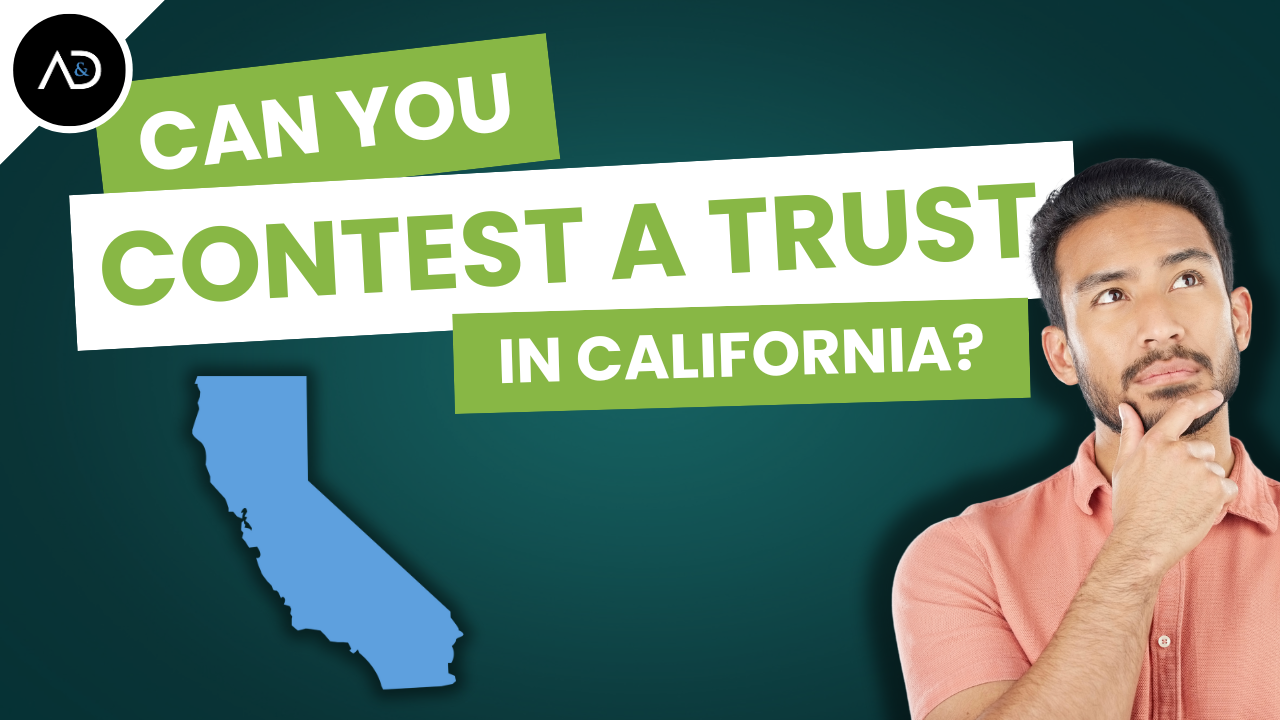
Yes—you can contest the validity of a trust or trust amendment in California, but only if you have legal grounds to do so. You cannot challenge a trust simply because you are unhappy with the outcome. The law provides specific circumstances under which a trust may be invalidated.
Here are the four most common legal grounds for contesting a trust in California:
-
Lack of Capacity
To create or amend a trust, the person establishing it (the settlor) must have the mental capacity required by law. There are two different legal standards depending on the nature of the trust or amendment: Testamentary Capacity This applies to simple trust amendments and is governed by Probate Code §6100.5. It is the lowest capacity standard under California law and requires that the settlor:
- Understands they are signing a trust document
- Has a general awareness of the property involved
- Recognizes the people who will benefit from the trust and their relationship to the settlor
Contractual Capacity
This higher standard applies to creating a trust or making a complex trust amendment, under Probate Code §812. It requires the settlor to:
- Understand the rights, duties, and consequences of their decision
- Evaluate how it affects them and others
- Grasp the risks, benefits, and alternatives
Because contractual capacity requires deeper comprehension, it can be easier to prove a lack of capacity in these cases compared to a simple trust amendment. However, all capacity challenges are fact-intensive and typically require medical records, testimony, and sometimes expert opinions.

-
Undue Influence
Undue influence is one of the most common—and effective—grounds to contest a trust. California law defines undue influence as a situation where someone manipulates a vulnerable person into making decisions that go against their true wishes. To prove undue influence, the following four elements must be shown:
- The settlor was vulnerable due to illness, cognitive decline, age, or dependency
- The wrongdoer used manipulative tactics to exert influence
- The wrongdoer had apparent authority (e.g., caretaker, advisor, or close confidant)
- The outcome was inequitable (unfair or suspicious benefit to the influencer)
Unlike capacity claims, undue influence does not require full incapacity. With this intention, it’s a more flexible and widely used claim in trust contests.
-
Lack of Due Execution
A trust or trust amendment must meet certain execution requirements to be valid. If those are not followed, the document may be challenged. Common execution issues include:
- The document was not signed by the settlor
- The document was forged (usually proven by handwriting experts)
- The formal requirements outlined in the trust were not followed
Important: California law does not require notarization of a trust or amendment. However, if the trust document itself requires notarization (or any other formality) for amendments, those procedures must be followed (provided the trust makes that procedure exclusive). Failure to do so can invalidate the amendment.
-
Fraud, Duress, or Menace
Although less common, a trust can also be challenged if it was created or amended as a result of:
- Fraud (e.g., the settlor was misled or tricked)
- Duress (e.g., threats or pressure to act against their will)
- Menace (e.g., use or threat of force)
These claims are difficult to prove and typically require strong, admissible evidence. However, they remain valid legal bases for contesting a trust in California.
Our Thoughts
Contesting a trust is a serious legal action with strict time limits and procedural requirements. With this in mind, if you believe a trust or trust amendment is invalid due to one of the reasons above, you should speak with an experienced California probate litigation attorney as soon as possible.

Timing Matters: In most cases, you must file a trust contest within 120 days of receiving notice under Probate Code §16061.7.
Albertson & Davidson, LLP has focused on trust and will litigation for over 18 years. We are the leading contingency trust and will litigation firm in the State of California. Additionally, our attorneys have successfully handled hundreds of trust and will litigation cases and have obtained over $300 million in verdicts and settlements for our clients.
In conclusion, contact us to see if you qualify for a free consultation.

